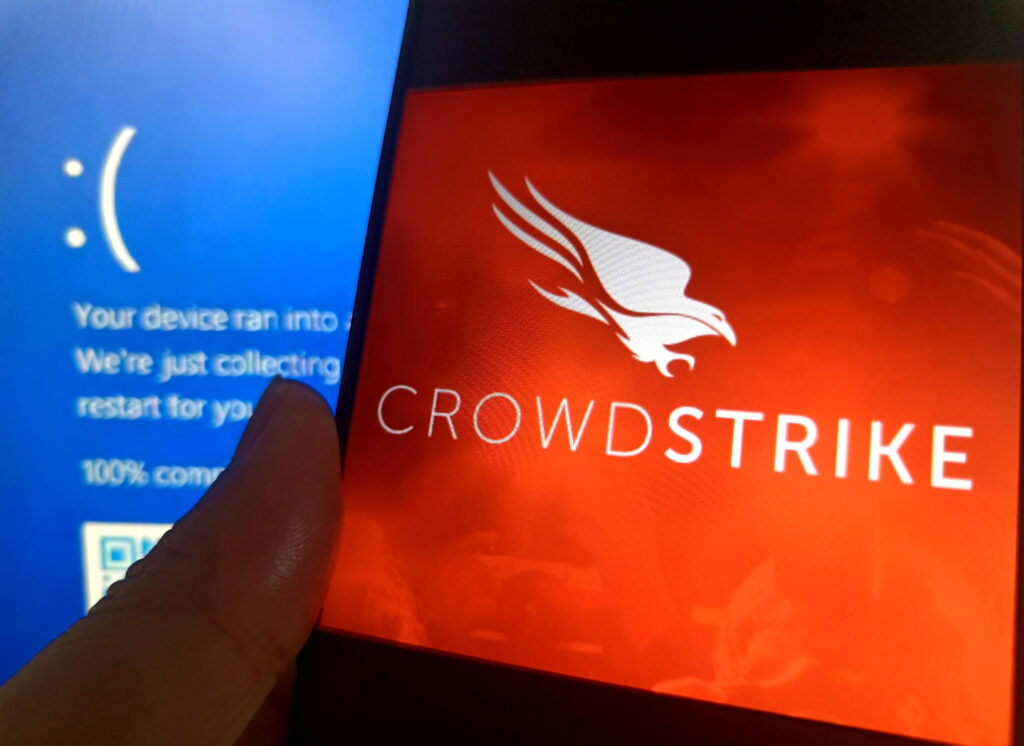The globe saw an unparalleled technological catastrophe last Friday: the biggest outage in history to impact critical Windows PC infrastructure worldwide. A defective upgrade from CrowdStrike, notably pertaining to its kernel-level Falcon Sensor software, was the cause of this massive interruption. The effect was so bad that it almost completely disabled contemporary Windows PCs, which caused several flight delays all around the world. Southwest Airlines was one of the standout exceptions to this mayhem, surviving mainly because it was using Windows 3.1, an antiquated version of the operating system, instead of any of the more modern ones.
But Windows computers are not the only ones affected by this issue. As to an article published in The Register, Linux users have been facing comparable problems associated with the Falcon Sensor program since April of this year. The problem’s cross-platform nature is called into interesting question by this. The broader picture suggests that CrowdStrike’s Falcon Sensor software has been beset by significant instability across various platforms for some time, even though the specific problem that caused last week’s worldwide outage might not be the direct cause of issues on Linux systems—since a problem of this magnitude would likely have manifested on Windows machines much sooner.
The importance of this problem must be understood in light of the significance that the kernel plays in an operating system. Operating systems revolve on their kernel, which is responsible for direct hardware interface and functions independently of human input. Key system resources are managed by it, and hardware and software communication is facilitated. Kernel access is not necessary for the majority of software programs to operate properly. But because it fights against threats that could try to get inside the kernel, security software frequently needs this access. Security software must thus preserve kernel stability and avoid crashes; clearly, CrowdStrike’s Falcon Sensor software has not lived up to this requirement.
An interesting aside noted by The Register is that CrowdStrike’s current CEO, George Kurtz, was previously the CEO of McAfee during a notorious incident in 2010. At that time, a problematic update caused numerous PCs to get trapped in an endless boot loop. This historical context potentially makes George Kurtz the first CEO to oversee two major global PC outages attributed to faulty security software updates. This pattern is troubling and raises concerns about the effectiveness of software quality assurance under his leadership.
The impact of the Falcon Sensor issues on Linux users has been notable, affecting several distributions, including Red Hat Enterprise Linux, Debian Linux (which serves as the basis for the widely-used Ubuntu), and Rocky Linux. The problems have been linked to the underlying Linux kernel, with kernel versions 5.14.0-42713.1 and newer being particularly affected. Although Linux users have options like switching to an eBPF “User Mode” to mitigate the issues, the fact that CrowdStrike’s software is causing problems on both Linux and Windows systems highlights severe deficiencies in the company’s kernel software development.
The situation underscores the need for stringent quality assurance testing for software updates, especially those targeted at enterprise and government environments. The recent global outage should have been anticipated and prevented through more rigorous testing procedures. Many of the users affected by these issues, particularly those in controlled or high-stakes environments, lack the technical expertise or administrative access required to resolve such problems on their own. Consequently, improving QA testing and development practices at CrowdStrike is imperative to avoid future disruptions of this scale.
CrowdStrike’s software development and quality control methods are flawed, as demonstrated by the Falcon Sensor upgrade incident. The fact that their software can interfere with both of the main operating systems points to fundamental issues that should be fixed. In order to make sure that these errors are discovered and fixed before they have an effect on users worldwide, CrowdStrike will need to completely revamp its testing and validation procedures going forward. Delivering stable and dependable software is essential to the company’s ongoing success and reputation in the cybersecurity sector, and resolving these problems will be critical to keeping its place in the market.
Significant vulnerabilities in the company’s kernel-level software were made clear by the recent worldwide outage that was brought on by an error in CrowdStrike’s Falcon Sensor software update. The problem’s effect on Linux and Windows computers suggests that CrowdStrike’s development procedures may have more serious flaws. Complicating matters further is the historical background of CEO George Kurtz’s prior engagement in related matters. CrowdStrike will need to put in place stronger quality control procedures and make sure that its software is thoroughly tested in order to stop future interruptions if it is to regain its footing and preserve its reputation.
If you like the article please follow on THE UBJ.
